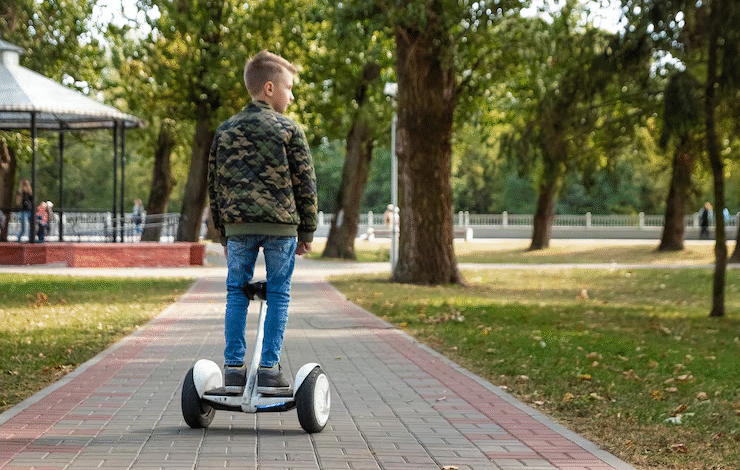Are Hoverboards Illegal? Understanding the Laws Around Hoverboard Use

These hoverboards have become a highlight in the world as they are becoming a fun mode of transport to use when it comes to short distances, and they have captured the attention of kids, teenagers, and even adults. However, popularity has brought a lot of confusion. Among the first things people usually would want to know before owning a hoverboard is, are hoverboards illegal?
It is not yes or no; it all depends on your location together with where you are planning to ride your hoverboard. The legislation is different in each country and even in each city or county. We will go in this guide through the legality of the possession of hoverboards in the major regions where they are permitted, places to ride the hoverboards, and the safety standards that may be adopted.
Hoverboard Laws: A Country-by-Country Breakdown
Hoverboards are generally legal to own and use, but restrictions often apply to where and how you ride them—especially in public areas. To find the most up-to-date rules for your region, you should always check local transport guidelines or visit website resources that outline city-specific laws.
United Kingdom
In the UK, owners can purchase, possess, and even use hoverboards in the UK; however, they cannot ride them on the street, the pavement, or on a cycle path. The reason is that hoverboards are included in the division of powered transporters that are not to be used, at least in the public space, in accordance with the Highway Act.
It is legal to ride on a hoverboard on privately held ground with the consent of the land.
United States
Hoverboard laws in the U.S. vary by state and even by city. In many places:
- Public sidewalk use is allowed
- Riders under a certain age must wear a helmet
- Speed limits (usually around 10 mph) may apply
Some cities ban hoverboards on public transit or restrict usage to bike lanes.
European Union
In the majority of countries of the EU, hoverboards are categorized as personal mobility devices, which are generally allowed on cycle paths or sidewalks. However, such countries as Germany and France may need
- Registration
- Helmet use
- Age limits
Middle East & Asia
Hoverboards are common in the UAE, Saudi Arabia, and parts of Asia. Nonetheless, the usage of indoor hoverboards is restricted in lots of shopping malls and parks, as well as other areas where these rideables can become dangerous. The outdoor capacity may be restricted to a few locations.
It is important to keep in mind that even in some of the countries where the use of hoverboards is legal, still, a given municipality or shopping center can have regulations.
Why Are Hoverboards Banned in Some Areas?
The primary concern behind hoverboard restrictions is safety. When hoverboards first became widely available, there were a number of reports of
- Sudden fires caused by faulty batteries
- Lack of balance training leading to injuries
- Riders colliding with pedestrians in public places
This led to certain nations being quick to limit or severely regulate their consumption.
The safety of batteries has tremendously changed over the past few years due to the UL-certified models, and the rules regarding their imports have become strict. Modern hoverboards are much safer, and especially those with well-known manufacturers do not run much risk of catching fire.
Nevertheless, governments continue to be cautious, particularly when hoverboards are ridden in high human traffic areas.
Hoverboard Law by Country
| Country/Region | Public Roads | Sidewalks | Helmet Required? | Notes |
| UK | ❌ Not allowed | ❌ Not allowed | Recommended for kids | Legal only on private property |
| USA (varies) | ✅ In some states | ✅ In most cities | ✅ Under 16 in most states | Laws vary by state and city |
| Germany | ✅ Allowed | ✅ In cycle lanes | ✅ Required | Must be registered and insured |
| France | ✅ Allowed | ✅ In certain zones | ✅ Under 12 | Speed limit applies |
| UAE | ✅ In approved areas | ❌ In malls | ✅ For public use | Private use widely accepted |
| India | ✅ In private areas | ❌ On roads | ❌ Not enforced | Hoverboards mostly unregulated |
iHoverboard G1—Designed for Safe Private Use
The iHoverboard G1 is a good choice among riders willing to find a hoverboard that satisfies the current standards of safety and performance, whether targeting kids or adults.
Key Features:
- 6.5-inch solid tires for smooth riding indoors and outdoors
- UL-certified battery and charger for safety
- Up to 7 miles of range per charge
- LED lights for night visibility
- Built-in Bluetooth speaker for entertainment
- Lightweight and portable, ideal for private property use
Safety, durability, and fun are the three things the G1 balances and makes this scooter an excellent option for those riders who do not want to go outlaw but still enjoy modern design and features.
Where Can You Legally Ride a Hoverboard?
If hoverboards are restricted in your country, the good news is that private property use is almost always allowed. Here are examples of acceptable places:
- Driveways or personal gardens
- Private roads or farm property
- Indoor spaces like event halls (with permission)
- Skateparks or hoverboard-friendly zones
- Some universities and business campuses with internal permissions
It is important to obtain the consent of the landowner. This does not imply that it is legal to ride on private space just because the space is not visible.
You also have to avoid places that have a notice board that reads No Scooters/Hoverboards, particularly in malls or places where there are pedestrians.
Tips to Stay Legal and Safe on a Hoverboard
- Know your local laws: Check with your city’s transportation department or traffic authority.
- Don’t ride on roads unless permitted. Most laws classify hoverboards as not road-legal.
- Avoid pavements in restricted countries like the UK.
- Wear a helmet, especially for kids and teens—and in areas where it’s legally required.
- Respect private property rules: Malls and public buildings may have their own bans.
- Use LED lights at night for visibility and added safety.
- Check battery certifications: UL-certified batteries are safer and more trusted.
Are There Any Legal Hoverboard Alternatives?
If you’re looking for a personal transport device that can be used on public roads or sidewalks, consider:
- Electric scooters (with road-legal certification)
- eBikes (with pedal assist)
- Electric unicycles (EUCs) with proper lighting and brakes
These are viewed to be more convenient to commuters and conform to automobile categories present in most places.
Nevertheless, hoverboards are an excellent choice to be used on an individual property or as recreation as well as in controlled indoor operations such as schools and warehouses.
Should You Still Buy a Hoverboard?
Yes—if you plan to use it legally. While they may not be road-legal in some places, hoverboards are still an exciting and effective mode of personal transport for private use.
They’re also great for:
- Kids learning balance and coordination
- Light exercise and movement around large properties
- Indoor use in wide, open areas
- Just having fun—especially with LED lights and music
Read the specifications of products on reliable sites before making the purchase, or go to the resources on the websites in order to assure product safety signs and use.
When you want to have a hoverboard as a means of street transportation, you should not use it. However, in the case of short-range, closed spaces or playing in the house, it is also an acceptable investment.
Conclusion
Then, are hoverboards illegal? Not quite, but they are limited in their application in most of the communal places based on the legislation. In the UK, as an example, they are not permitted on the public roads or pavements but are fine on privately owned land. Nonetheless, other nations are more lenient, and yet they might possibly demand a helmet, registration, or observance of speed limits.
The trick is to understand your local laws, to ride with safety, and to select a good brand-name hoverboard with safety certification.
Hoverboards will not be going away very soon. With the respective laws changing and a variety of personal transport choices and gadgets available, the most secure and satisfactory way to ride around on any given vehicle without receiving a ticket is to know how to ride it, not just to ride it.




